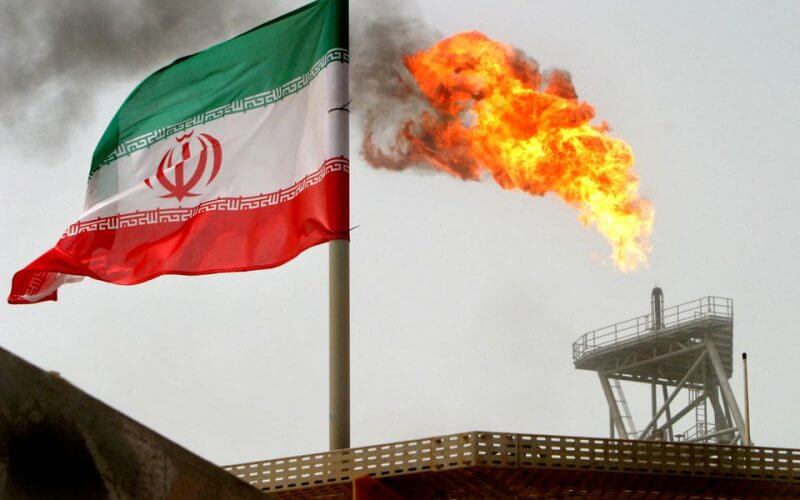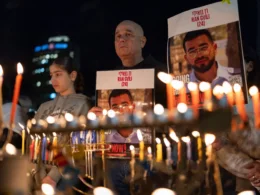As negotiations continue in Vienna for a potential Iran nuclear deal, many are outraged that the United States could potentially remove the Islamic Revolutionary Guard Corps, the Iran regime’s paramilitary arm, from its list of Foreign Terrorist Organizations – given some conditions. Yet, Iran has made no indication that it is willing to meet the conditions.
Although details are not public, one of the conditions the Biden administration is reportedly demanding in return for removing the terrorist designation is that the IRGC scale back its terrorist activities by committing to ‘de-escalation’ in the Middle East.
Iranian negotiators are prepared to offer no such commitment, according to anonymous sources cited by Axios.
The IRGC is a brutal, paramilitary organization that props up Iranian regime interests inside and outside of its borders. The Trump Treasury Department added the IRGC to the list of Foreign Terrorist Organizations.
As recently as this month, members of the IRGC are reported to be plotting the assassination of former National Security Adviser John Bolton. President Trump notably ordered the airstrike which killed IRGC commander Qasem Soleimani in early 2020 while Bolton was national security adviser.
It’s unclear whether the U.S. or Iran first floated delisting the IRGC as an incentive to keep Iran at the negotiating table, but the Biden administration is now considering it in return for ‘de-escalation.’
Reports of the possibility have been met with bipartisan outrage from lawmakers. Some Democrat senators are shying away from supporting a deal that would include removing the IRGC from the list, and some 87 members of the House sent a letter to Secretary of State Antony Blinken urging him to oppose the removal.
U.S. allies like Israel want to see the IRGC retain its terrorist designation and the sanctions that go along with it. After reports last week circulated that the Biden administration was considering delisting the IRGC, the Israeli Prime Minster and Foreign Minister issued a joint statement of condemnation, saying “We believe that the United States will not abandon its closest allies in exchange for empty promises from terrorists… The Iranian Revolutionary Guards are Hezbollah in Lebanon, they are Islamic Jihad in Gaza, they are the Houthis in Yemen, they are the militias in Iraq… The Revolutionary Guards are behind the attacks on American civilians and soldiers throughout the Middle East, including in the past year. They are the ones behind the plans to assassinate senior American government officials.”
Other allies such as the United Arab Emirates and Saudi Arabia which are frequently attacked by Iran-backed Houthis are shy of any concessions the U.S. may be making.
The substance of the talks in Vienna is very murky. Some lawmakers are concerned the Biden administration will reach a deal that it will construe as a return to the 2015 Joint Comprehensive Plan of Action, which it will say does not need to be run by Congress as it is not new. However, Iranian negotiators’ hesitancy to agree to de-escalation could mean the U.S. will soon walk.









